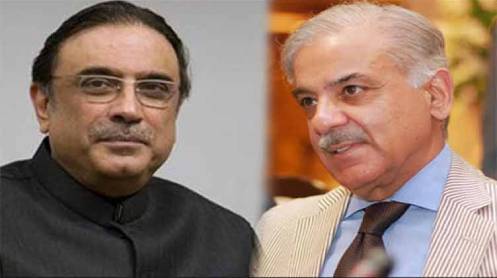After ten days of intense negotiations following an inconclusive national election, the Pakistan Peoples Party (PPP) and the Pakistan Muslim League-Nawaz (PML-N) have struck a deal to form a coalition government once again. The agreement, finalized on Tuesday night, outlines the distribution of key positions, including prime minister, president, governorships, and chairman Senate.
Under this arrangement, Shehbaz Sharif is slated to resume the role of prime minister, while Asif Ali Zardari will return to the presidential office. Additionally, the PPP will take up the roles of Senate chairman and Punjab governor, with PML-N governors appointed in Sindh and Balochistan.
The agreement ends a period of uncertainty following the Feb 8 elections, during which no single party secured a clear majority in the national assembly. Top leaders from both parties confirmed their decision to join forces “in the nation’s best interest” after multiple meetings.
Initially, there were indications of disagreement, with PPP suggesting it would cast its vote for PML-N’s prime ministerial candidate under certain conditions. However, a surprising turn of events occurred later in the day, with Bilawal Bhutto Zardari announcing PPP’s support for Shehbaz Sharif’s candidacy for prime minister and reciprocated support from PML-N for Zardari’s candidacy as president.
The coalition, comprising the two largest parties along with smaller allies, holds a comfortable majority in the legislature. The delay in forming a government had raised concerns amid Pakistan’s economic crisis and other challenges.
Bilawal Bhutto-Zardari expressed optimism about the coalition’s ability to address these issues promptly once in power. He emphasized the commitment of both parties to serve Pakistan’s interests and ensure stability and progress for future generations.
With the necessary numbers secured, the parties aim to establish the new government swiftly, in accordance with the country’s constitutional procedures. The developments mark the emergence of a renewed political alliance, commonly referred to as PDM 2.0, poised to shape Pakistan’s political landscape in the coming years.





